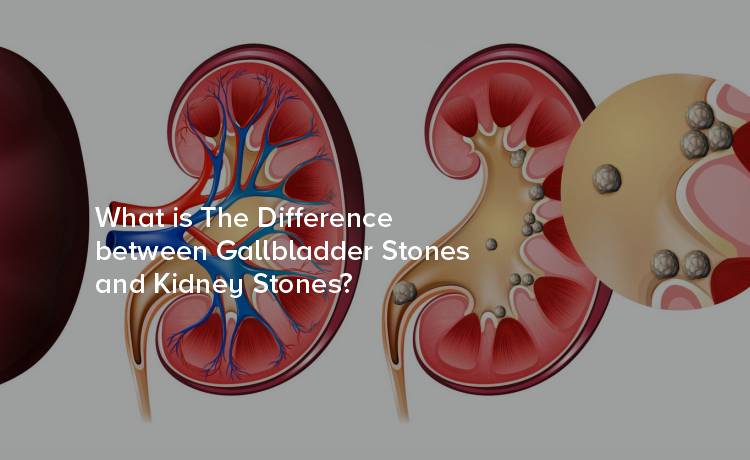
The human body, a marvel of complexity, is sometimes the host to unwelcome visitors known as stones. These stones, found in various parts of the body, can cause excruciating pain and discomfort. Among the most common types are gallstones and kidney stones, which can often be confused due to their similar-sounding names but are distinctly separate ailments. Understanding the differences between them is crucial for both treatment and prevention.
Gallstones are solid particles that form in the gallbladder, a small organ on the right side of the abdomen that stores bile, a digestive fluid produced by the liver. The stones can vary in size, ranging from as small as a grain of sand to as large as a golf ball, and are often made of cholesterol and other substances found in bile.
In contrast, kidney stones form in the kidneys, the organs that filter waste from the blood. Like gallstones, kidney stones can also be composed of different substances, the most common being calcium in combination with oxalate or phosphate, although they can also contain uric acid or other compounds.
While both gallbladder and kidney stones can be asymptomatic, they often present with distinct sets of symptoms. Gallstones typically cause symptoms when they block the normal flow of bile, leading to severe pain in the upper abdomen, commonly referred to as a gallbladder attack (or) Acute cholecystitis
On the other hand, kidney stones lead to symptoms when they attempt to move out of the kidneys and travel down the ureters, the tubes that connect the kidneys to the bladder. This movement, known as passing a kidney stone, can be excruciating and is characterized by sharp pain on one side of the back or lower abdomen, often accompanied by blood in the urine.
Another notable difference is that gallstones can sometimes lead to inflammation of the gallbladder or cause an infection, which may result in cholecystitis. Meanwhile, kidney stones can result in an infection of the urinary tract, known as a urinary tract infection (UTI) (or) Lithogenic Urine.
The risk factors for developing gallstones differ from those of kidney stones. For gallstones, the most significant risk factors are being female, overweight, or over the age of 40. Additionally, a high-fat diet, a sedentary lifestyle, and certain medications can increase the risk. On the other hand, the primary risk factors for kidney stones include dehydration, a diet high in protein, sodium or sugar, and obesity.
Regarding prevalence, gallstones are more common than kidney stones. Approximately 10-15% of adults in the United States are afflicted with gallstones, while kidney stones affect about 1 in 11 people.
The diagnosis of gallstones and kidney stones involves different procedures. For gallstones, ultrasound is the most common diagnostic tool, as it can visualize the gallbladder and detect the presence of stones. Occasionally, more advanced imaging such as a CT scan may be needed to confirm the diagnosis or evaluate for complications.
For kidney stones, ultrasound or CT scans are also used to diagnose the presence of stones, but in the acute setting, CT scans are often preferred due to their high sensitivity and specificity for detecting stones, as well as any associated backup of urine in the kidneys.
Treatment for gallstones and kidney stones depends on factors such as the size of the stone, the severity of symptoms, and the patient's overall health. Gallstones that are asymptomatic generally do not require treatment, while symptomatic gallstones often lead to surgical removal of the gallbladder, a procedure known as cholecystectomy.
For kidney stones, treatment can include pain management, increased fluid intake to help the stone pass, and, in some cases, procedures such as extracorporeal shock wave lithotripsy (ESWL), ureteroscopy, or percutaneous nephrolithotomy (PCNL) to break up or remove the stone.
In both cases, lifestyle modifications and dietary changes may be recommended to reduce the risk of future stone formation.
Both gallstones and kidney stones can have long-term implications for a patient's health. In the case of gallstones, if the gallbladder becomes inflamed (acute cholecystitis), surgical removal of the gallbladder may be necessary. Chronic inflammation can also lead to a condition called chronic cholecystitis, which may require ongoing management and can increase the risk of developing gallbladder cancer.
For kidney stones, the presence of a stone can damage the kidney tissue over time, leading to chronic kidney disease. Patients who have experienced one kidney stone are also at an increased risk of developing more stones in the future, necessitating long-term monitoring and preventive measures.
Prevention is always the best course of action when it comes to stones in the body. For gallstones, maintaining a healthy weight, eating a balanced diet that's low in fat and high in fiber, and getting regular exercise can help reduce the risk. Avoiding crash diets and prolonged fasting can also minimize the risk of stone formation.
For kidney stones, staying well-hydrated is key, as it dilutes the substances in urine that lead to stone formation. Reducing the consumption of foods high in oxalates, such as spinach, nuts, and tea, and moderating salt and animal protein intake can also be beneficial.
Lifestyle adjustments are crucial for those who have experienced either gallstones or kidney stones to prevent their recurrence and promote overall health.
Gallbladder stones and kidney stones are separate entities, each with its own set of causes, symptoms, and treatment approaches. The key to managing both conditions lies in understanding the differences and taking appropriate action to prevent their formation. By staying informed and proactive, individuals can work towards a stone-free future and better overall health. For gall bladder stone treatment in Hyderabad, rely on Citizens Specialty Hospital for expert care and successful outcomes.